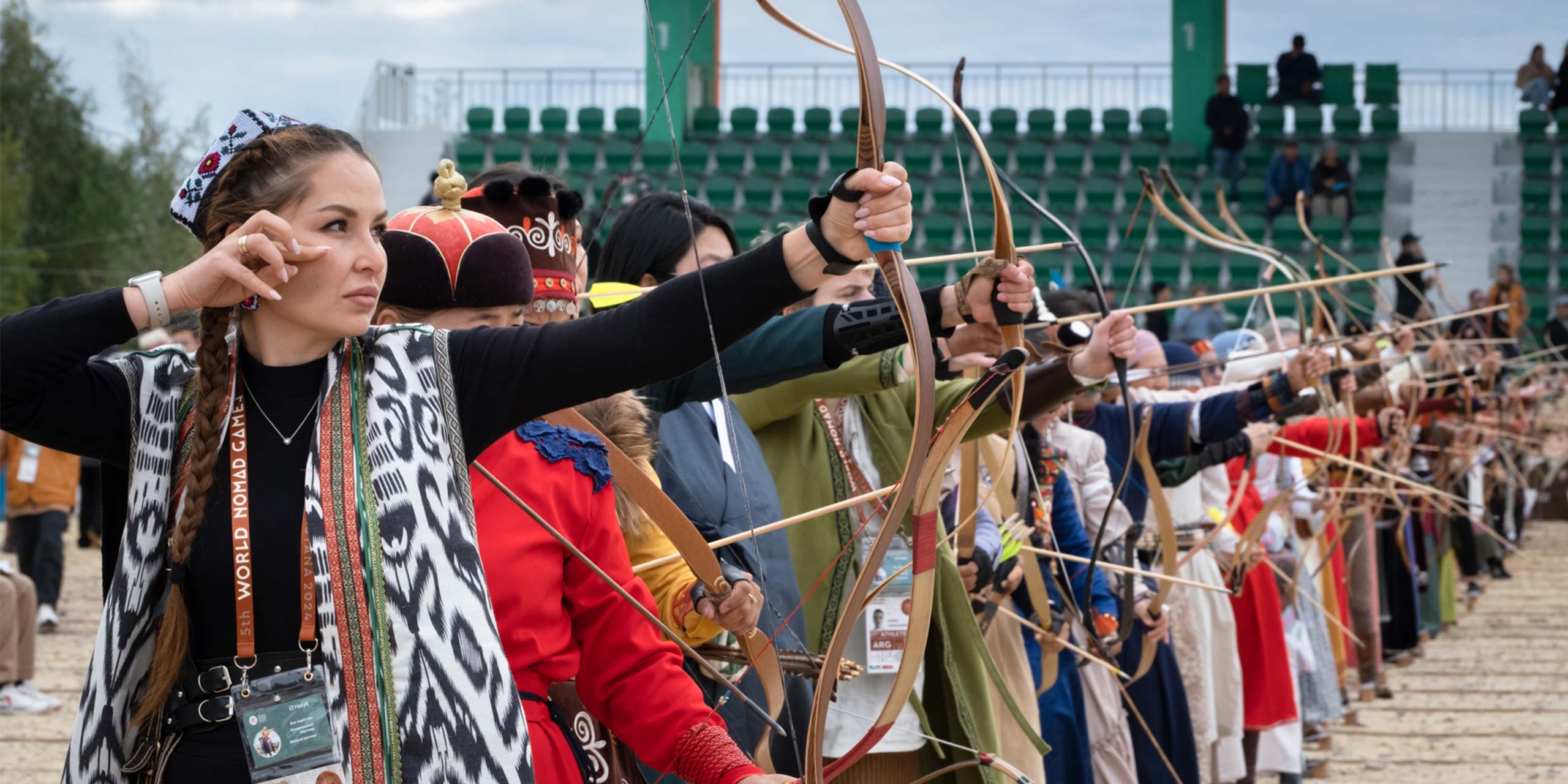
The atmosphere is as tense as the muscles and veins pushing against an almost impossible task: pulling a large, heavy trolley across a sandy sports arena.
Before giving up the ghost and falling to his knees, dust lifting all around him as a halo, we have observed this large Kazakh man use all his strength to push a 200kg (440lb) trolley for about twelve meters exactly as a pair of oxen would do. The reward for pretending to be a beast of burden? A long-standing ovation and a step closer to winning a gold medal in the “Powerful Nomad Strongman Competition” — a sort of nomadic Iron Man challenge for strapping lads weighing over 90kg (200lbs).
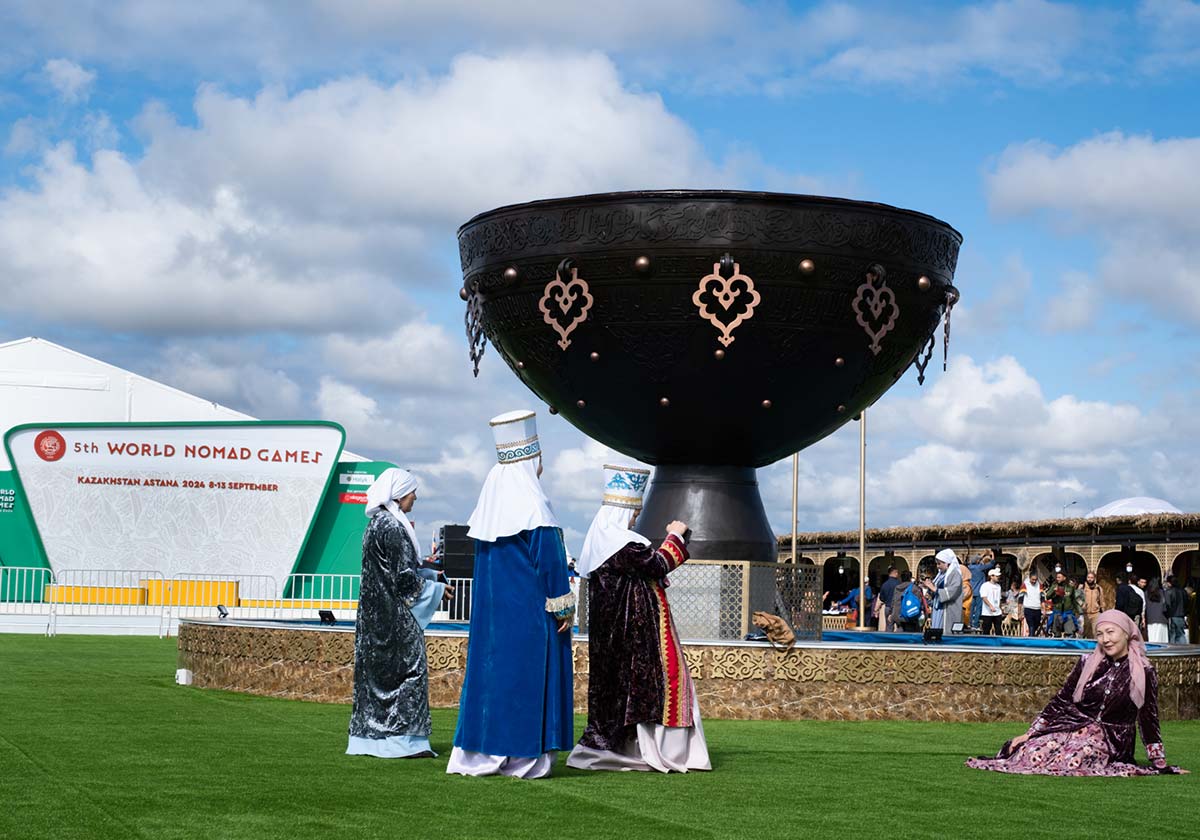
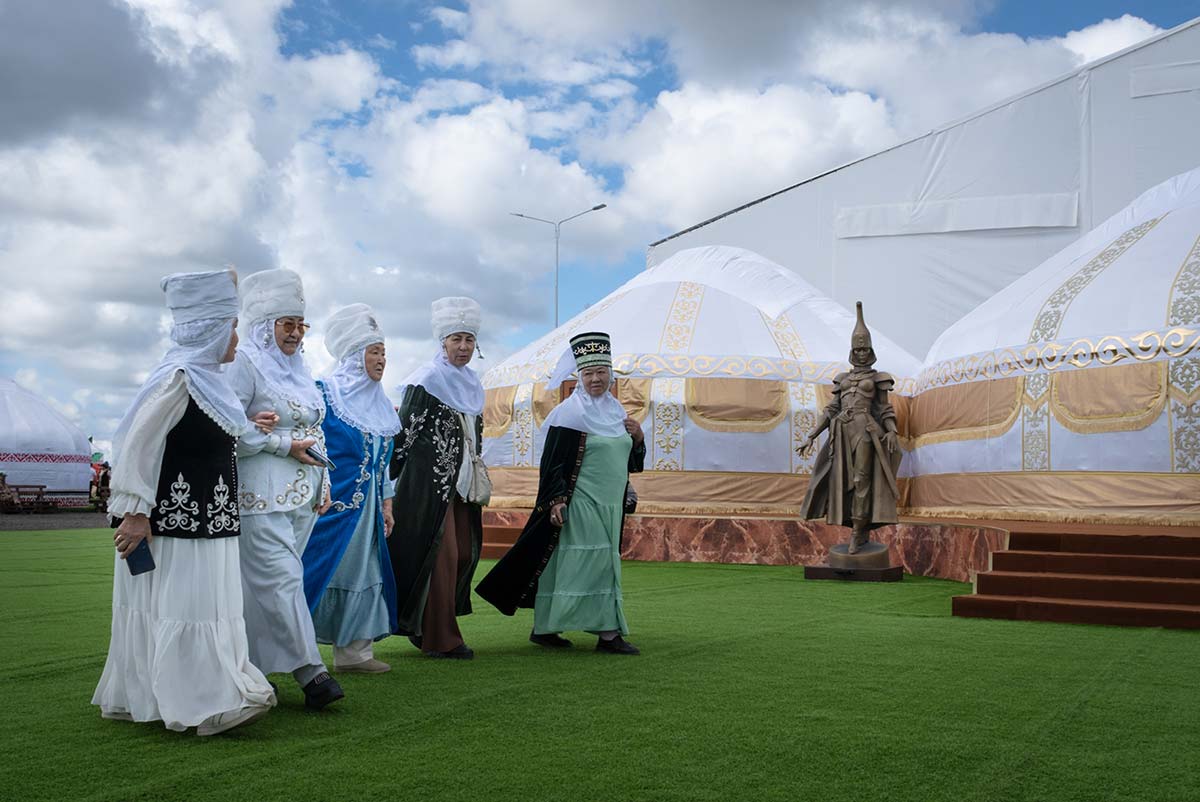

This contest for big, strong men also included challenges in weightlifting and javelin throw — and it was all part of the fifth edition of the World Nomad Games that concluded in Astana, the futuristic capital of Kazakhstan, in the middle of September 2024.
They were started ten years ago in 2014 by the former Kyrgyz president Almazbek Atambaev to promote the regional nomadic cultures of Central Asia and defy globalization. A decade later, the World Nomad Games became one of the main reasons people traveled to the region. For now, the bi-annual games have had their first three editions in the resort lake town of Cholpon Ata, Kyrgyzstan, one in Iznik, Turkiye, in 2022, and the fifth and latest in Astana — the games’ first outing in Kazakhstan.
This latest event hosted more than 2000 athletes from 89 different countries worldwide, from Argentina to Zimbabwe, Italy to the United States, who all came to “battle it out” — for no better term — to the last medal.
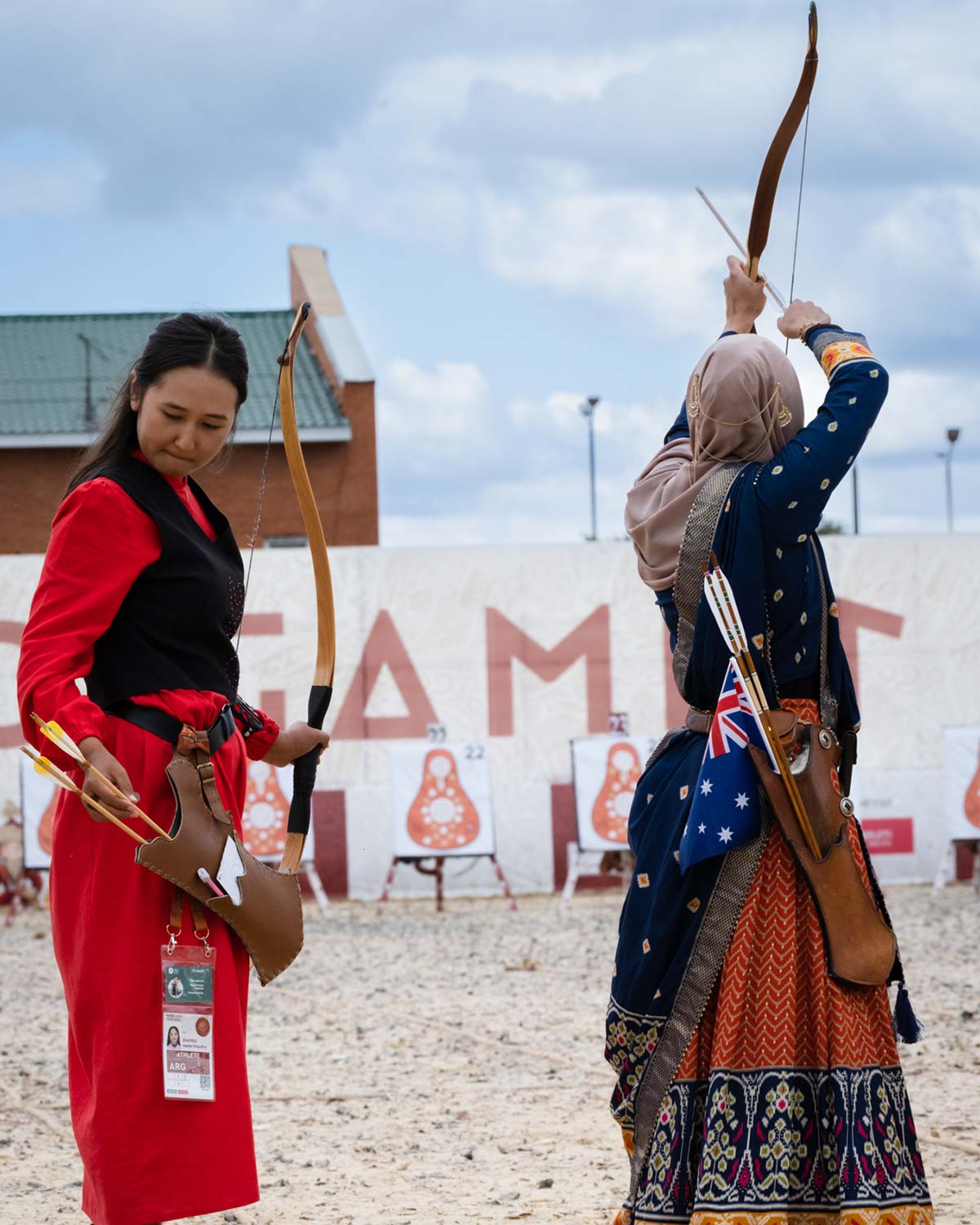
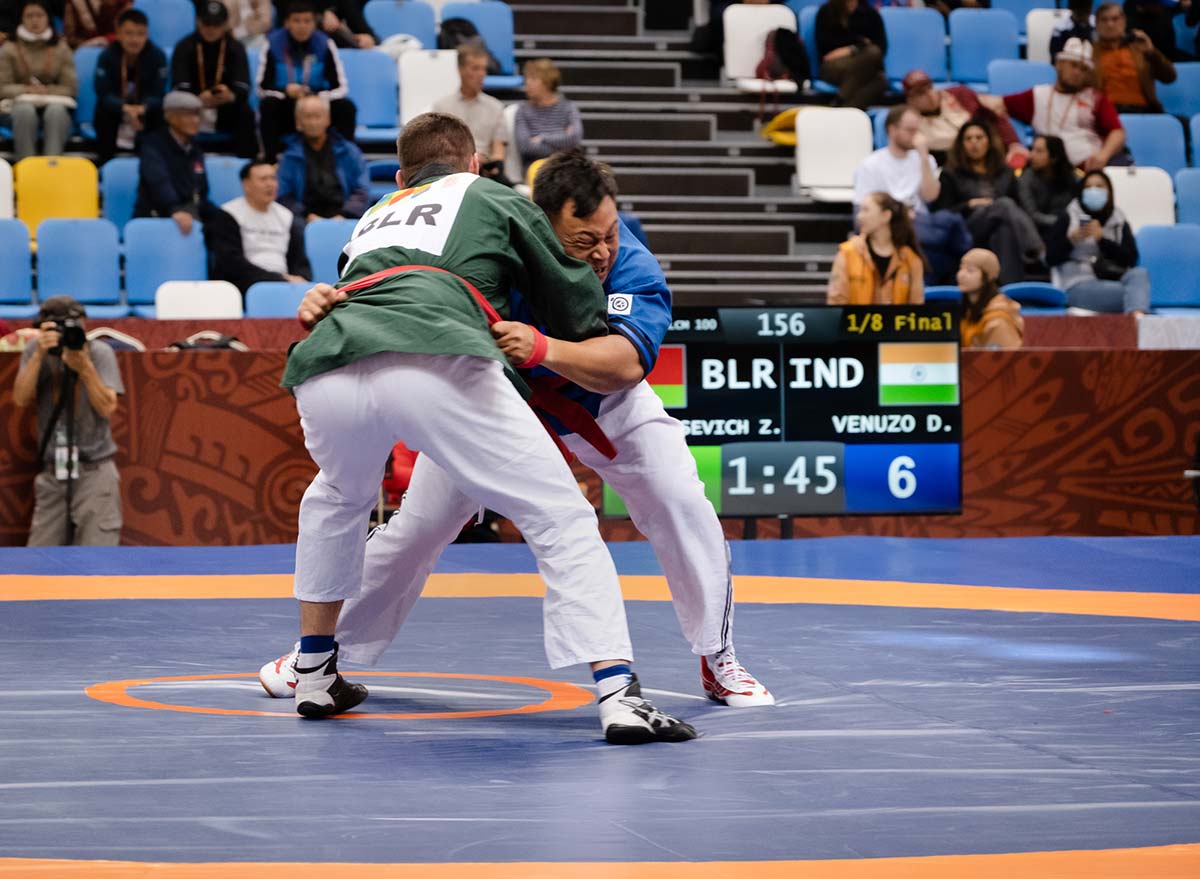
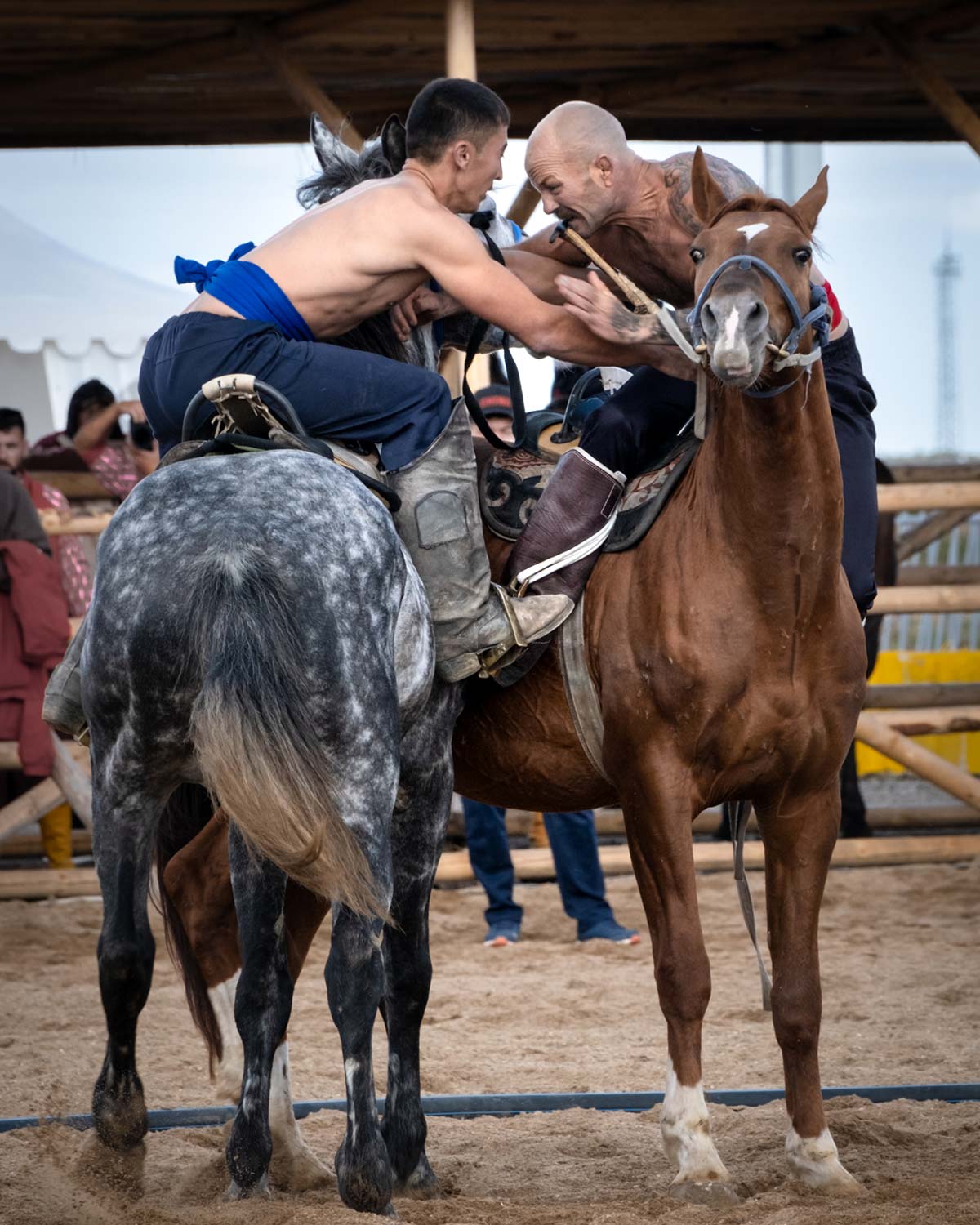
If it’s hard to grasp what this event may entail, well, the World Nomad Games are like a sort of Olympic Games of Central Asia, and substitute all the traditional sports one expects with unknown and yet very ancient disciplines that stem from what the Mongols of Genghis Khan defined as the “three games of men”: archery, wrestling and horse racing… with plenty of crossover and no mutual exclusion.
Among the 21 different games that included several kinds of wrestling, such as Kazak Quresi and Kurash, the highlights were audaryspak, a quirky and exciting form of horseback wrestling in which contestants must fight and pull their opponents off their mounts, and kusbegilik — the waning art of establishing a bond between a master and his birds of prey. The games saw the performances of majestic golden eagles, falcons, and hawks whose flight speeds and reactions to the owner’s command were assessed by a jury.
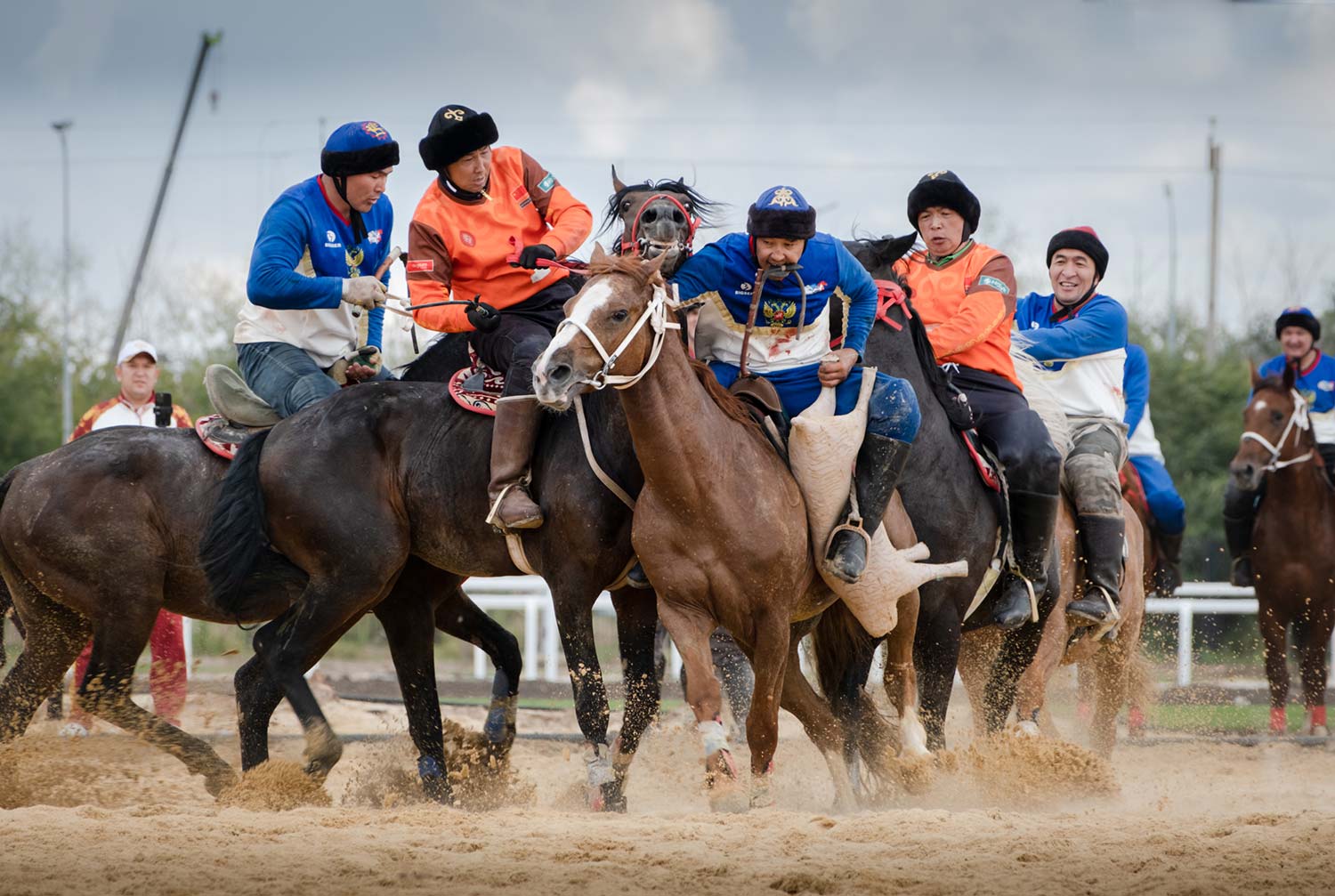
The most exciting game — a local equivalent to football or rugby — was kokpar, a wild horseback sport that is best described in English as “horse rugby with a dead goat.” For the international occasion, the “carcass” used at the Fifth World Nomad Games was a fake rubber model, but a dead, headless, and disemboweled animal is the norm in this discipline played across most Central Asian nations with slightly different variations and other names such as kok buru, ulak tartysh and buzkashi — the latter is Afghanistan’s much-loved national sport, currently allowed even under the new Taliban rulers.
All the outdoor games requiring horses and archery were held in the makeshift nomadic village of Ethno-haul and the adjacent Kazanat Hippodrome in the south of Astana. These 10 hectares of dedicated event space were decked out as a nomadic encampment strewn with stages, dozens of round gers (traditional felt nomadic tents), and many proud people strutting around in their beautiful traditional Kazakh clothes, some carrying Golden Eagles and falcons on their arms, others pulling regal (and very endangered) Kazakh Tazy hunting dogs by the leash.
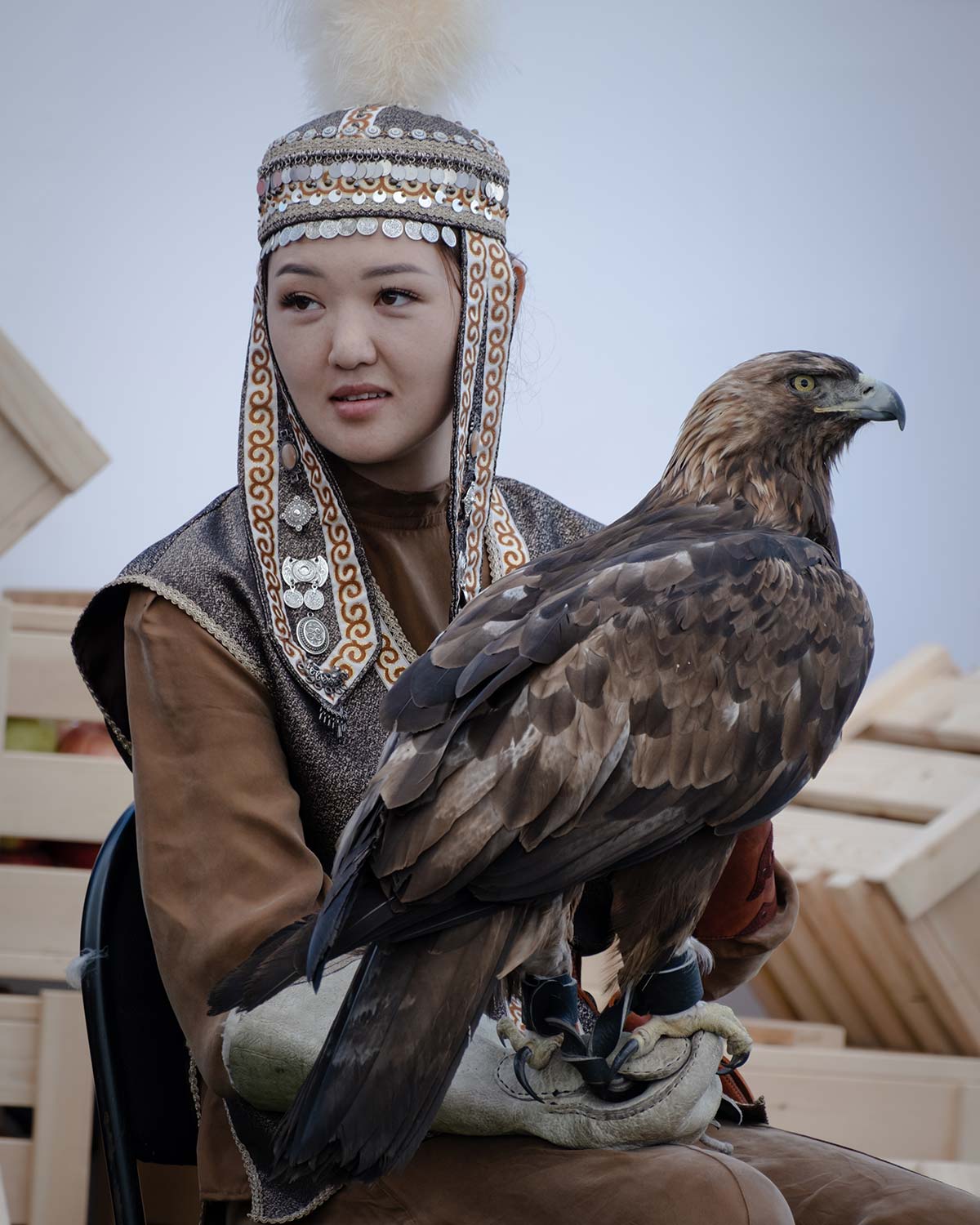
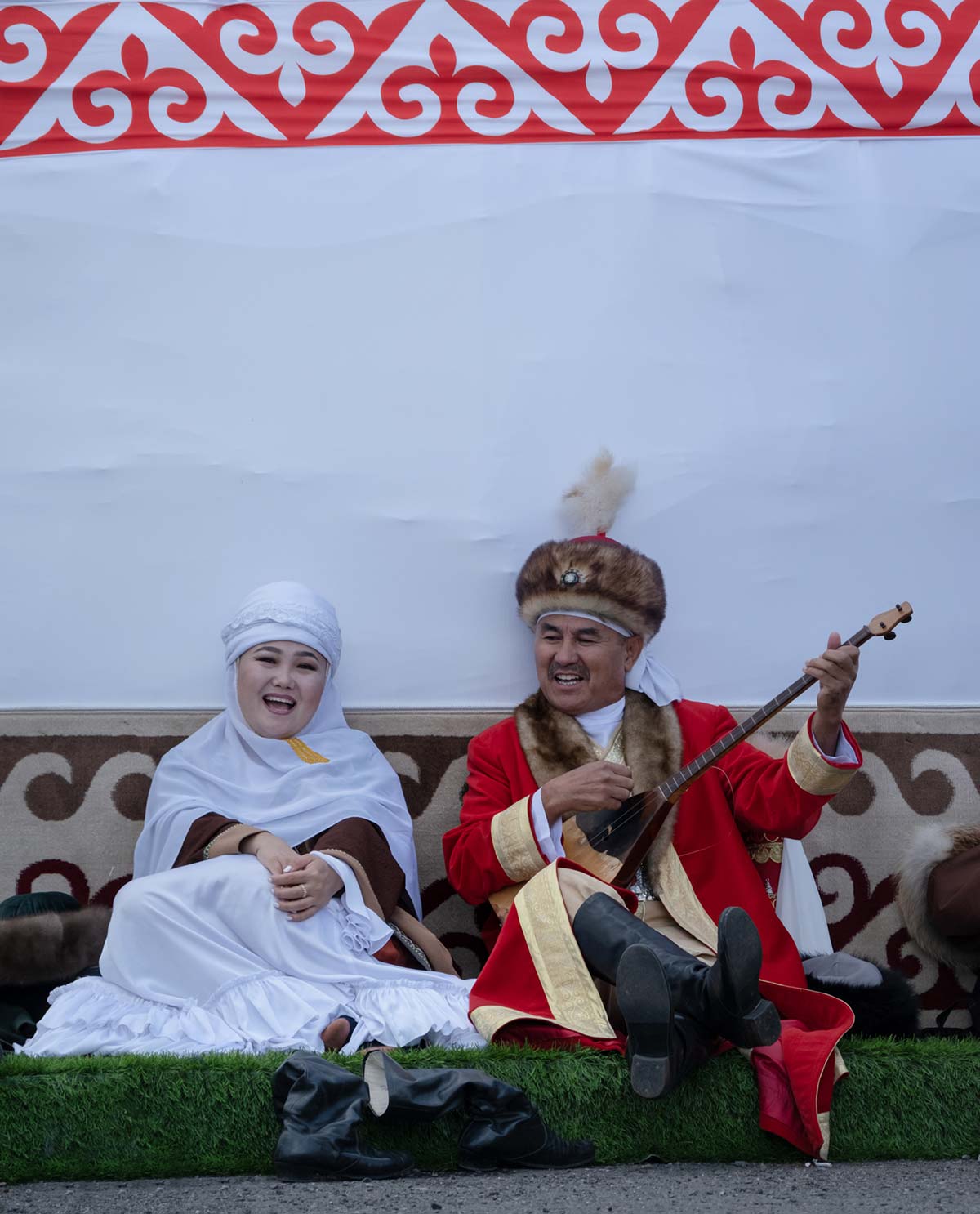
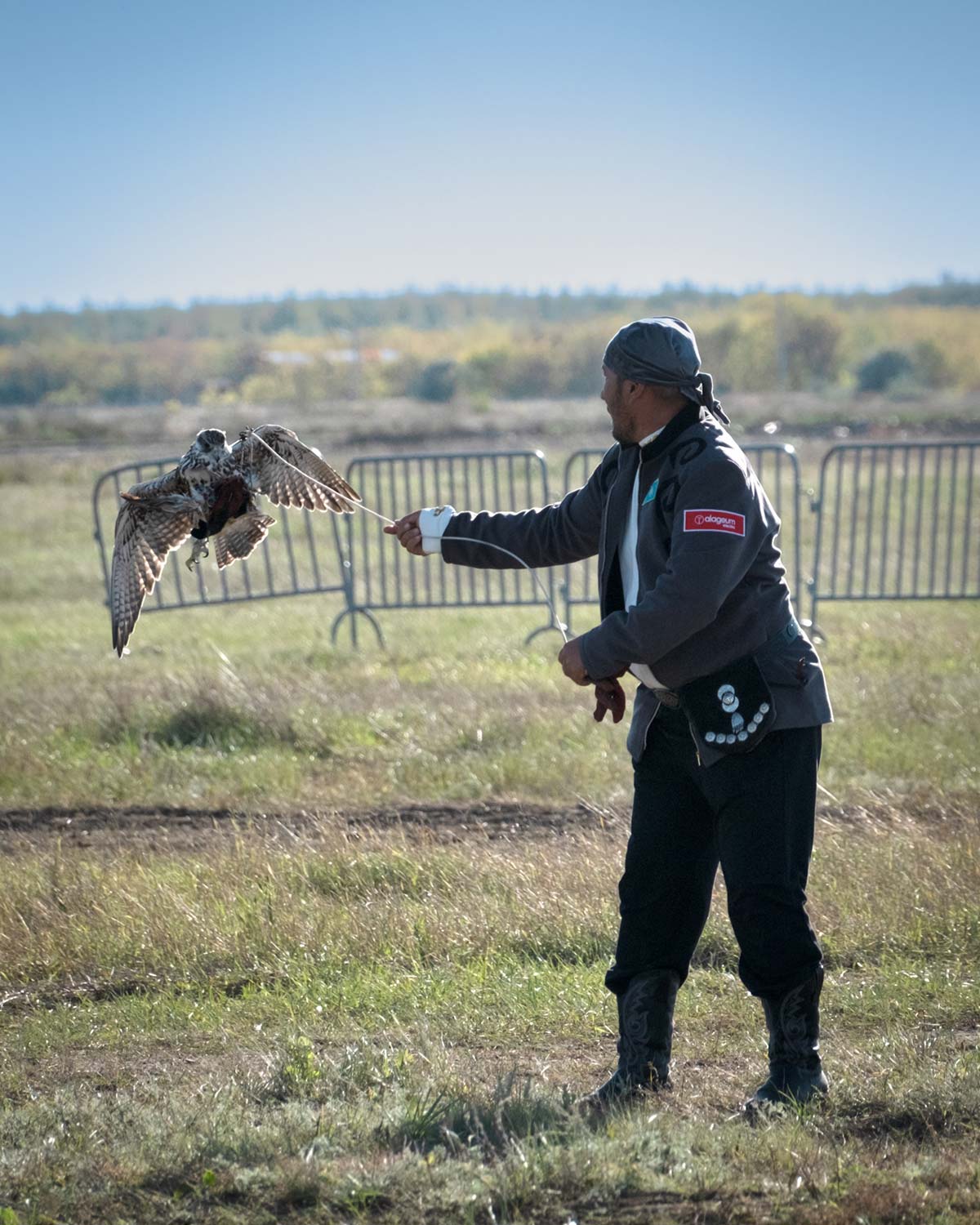
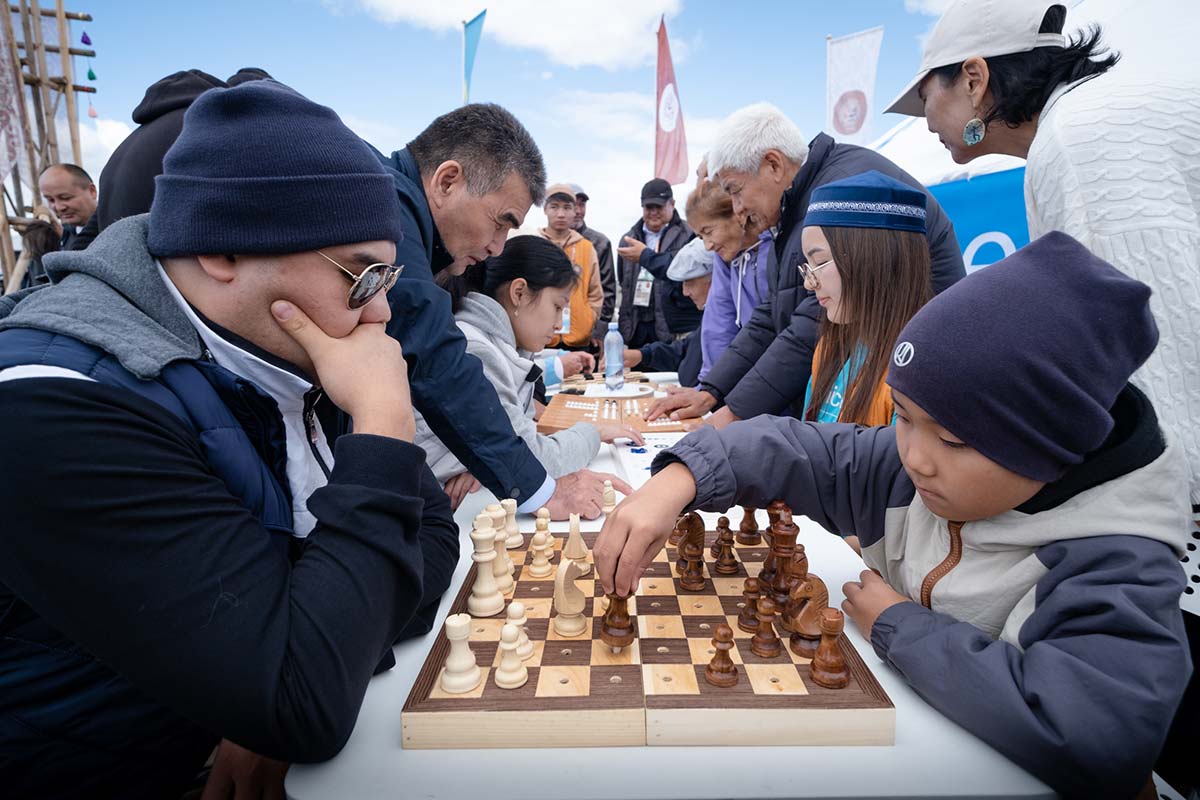
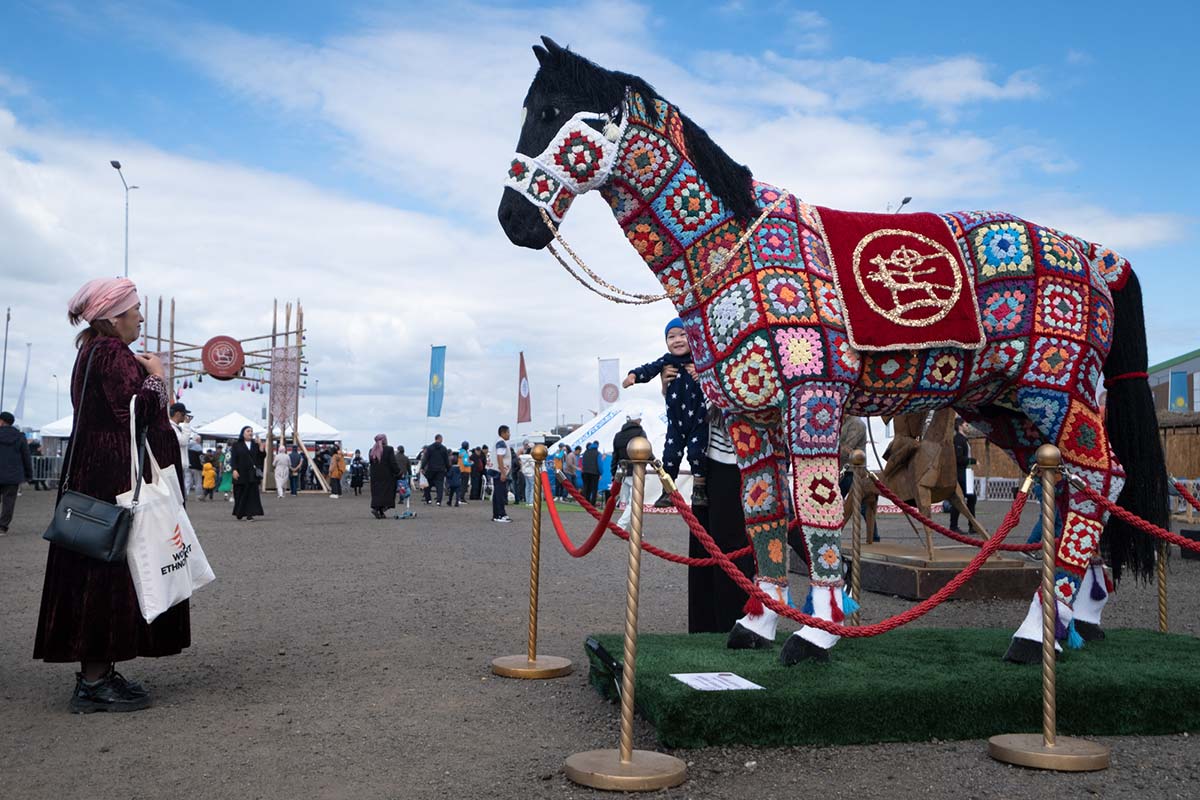
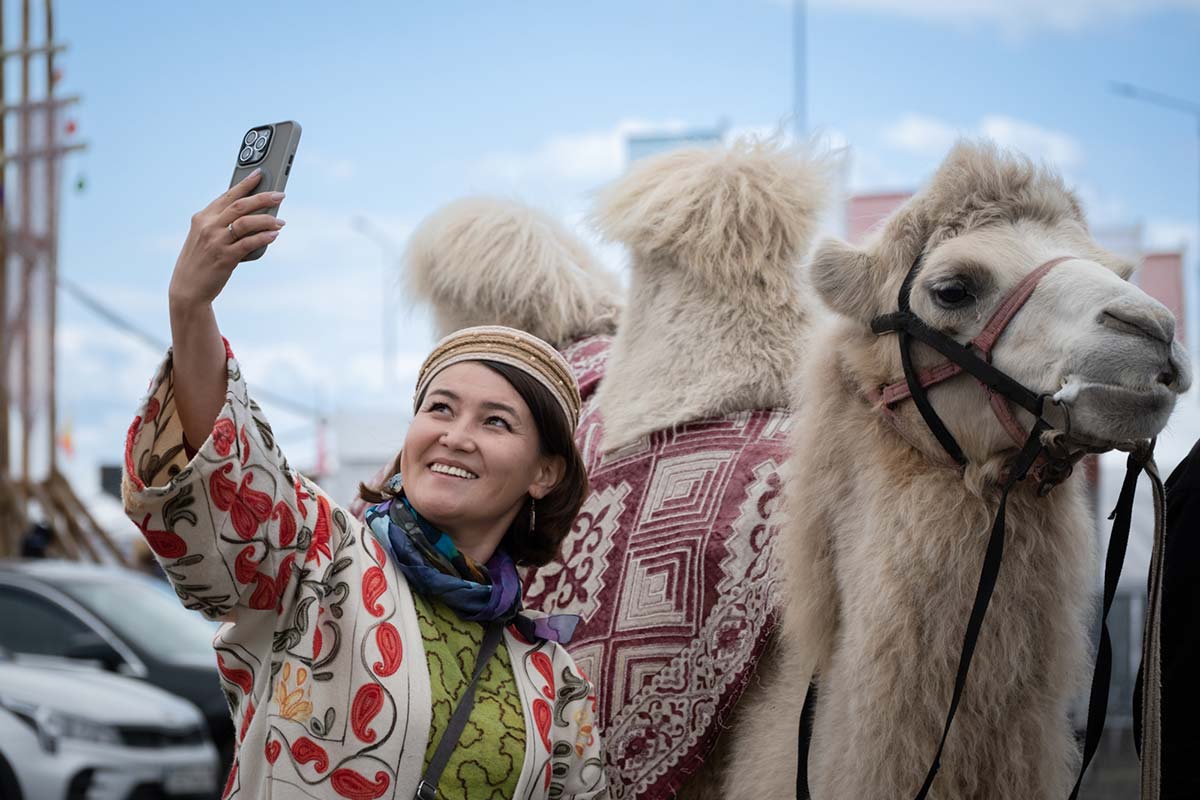
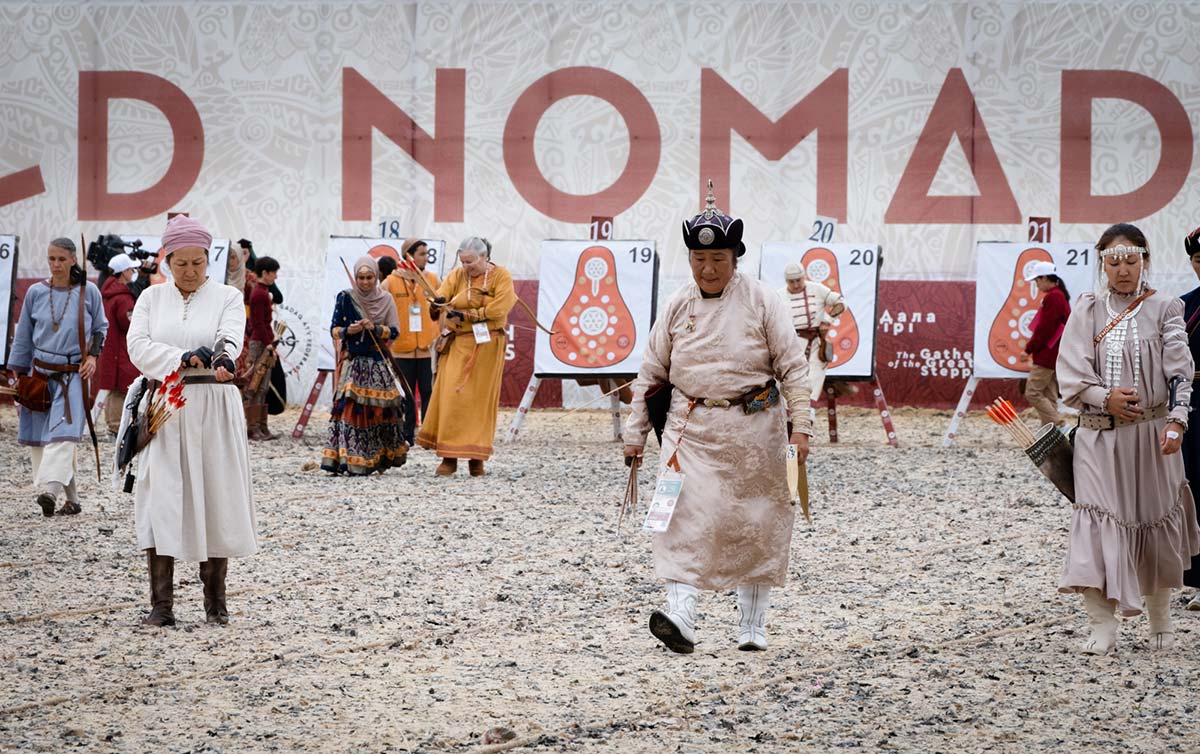
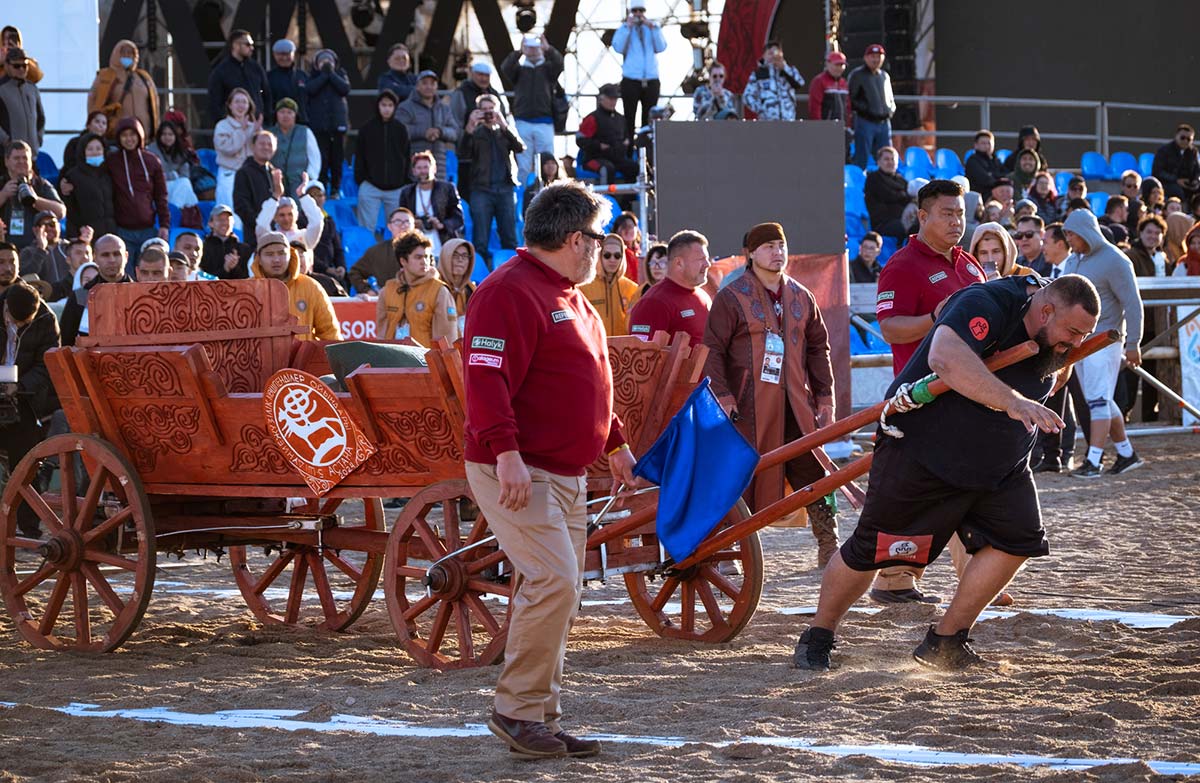
The area also played host to the less muscular portion of the festival, such as the strategic games of togyzkumalak, a board game of the mancala family, where players must collect the highest number of stones to win, and aitys — a Kazakh and Kyrgyz style of improvised folk music and poetry competition, which is listed under Unesco Intangible Cultural Heritage since 2015.
In a week of games, host nation Kazakhstan managed to win 112 medals, including 43 golds — including the much-coveted kokpar medal, which they snuggled over their friendly southern neighbors and former World Nomad Games host, Kyrgyzstan, which won instead in the similar horseback polo competition of kok boru. It was also announced that it will be again Kyrgyzstan to continue carrying the nomadic Olympic torch as the next host nation of the 2026 edition of the World Nomad Games — mark your calendars and make it an occasion to visit central Asia and witness firsthand some of its incredible culture and unique sports.
